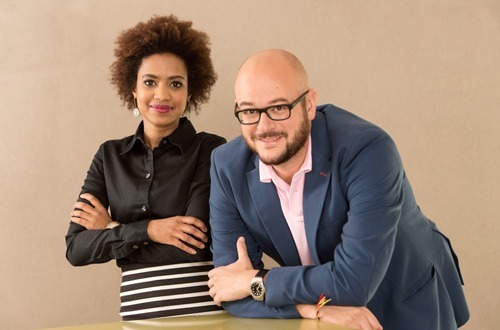
Nothando Moleketi and Felix Martin-Aguilar are the founders of Zwipit SA. Launched in November 2014, Zwipit specialises in buying used and new mobile devices (smartphones, feature phones and tablets) and repairing them for resale at affordable prices.
Moleketi and Martin-Aguilar first worked together at Cell C in 2013. Martin-Aguilar, who is the managing director has a background in mobile including stints at various mobile companies.
Moleketi was part of the start-up team of Zomato in South Africa and she is one of the founders of The WKND SOCIAL, a monthly brunch and day party event.
The goal for the self-funded Zwipit, according to its founders, is to set up an innovative business with a new and young approach to offer a world-class customer experience supported by cutting-edge technology.
Moleketi and Martin-Aguilar share their startup story:
With our background in telecommunications and e-commerce and the strong growth that these industries are experiencing in our country, it was clear we had to develop our proposition in this space.
Zwipit’s value proposition is most definitely one of the most innovative we have seen in recent years, and with 16,5 million smart devices and a growth of 20% per annum in our country, the demand for this service was unquestionable. Who doesn’t have an old and forgotten device in the drawer?
Our biggest challenge has been the supply chain. Zwipit collects devices from individuals’ and companies’ premises, what is known in the technical jargon as “reversed logistics”. Reverse logistics adds a level of complexity to traditional e-commerce operations and South Africa is only now starting to crack the logistic models that e-commerce requires, agile, structured and geared for high volumes and short lead times.
The company currently sends the devices overseas to be refurbished and sold, in the short term we aim to refurb in-country and sell directly to the South African public. With this approach, Zwipit will be able to offer much more aggressive pricing and faster turnaround times.
“Johannesburg is lagging”
E-commerce companies invest substantial amounts of money and effort in technology to support the self-care environment that allows them to be competitive in price and service. We receive daily phone queries and emails from people sending us all the details for the transaction that they haven’t even tried to do it on the site. This puts a heavy and costly load on the e-commerce “supposed to be lean” customer support operations. We are confident that this reality will change within the next 2 years.
There are two things that we overestimated, the first one was the consumer confidence to transact online, and the second was the readiness of the logistics companies to provide best-class reverse logistic and e-commerce integrated operations.
A vibrant startup eco-system is starting to consolidate in Cape Town, where private companies and educational institutions are showing an active interest in promoting and supporting entrepreneurship.
“The entrepreneur must see problems as challenges
and enjoy solving them”
Johannesburg is lagging and this is still quite noticeable in the way that institutions perceive the entrepreneur. We have been engaging with several private equity firms in the continent and when they come to South Africa they go to Cape Town to look for opportunities
Our main advice is to think and plan. It is very easy to get bogged down with the millions of operational issues that you need to solve daily, but is critical to prioritise and stick to your plan to be able to succeed. The critical success factor is to strike a balance between agility in the manoeuvring and a structured and planned approach.
Never lose the passion and have fun! The entrepreneur must see problems as challenges and enjoy solving them.






